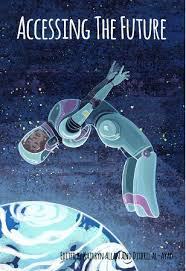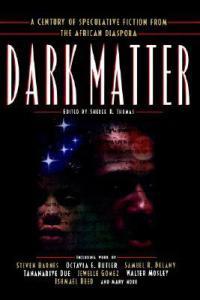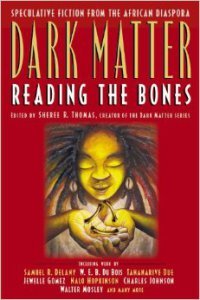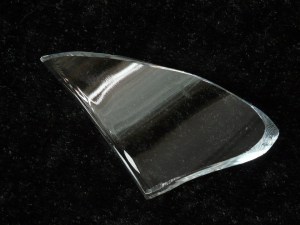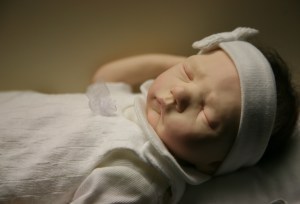Rachel Swirsky's Blog, page 18
September 9, 2016
Weekend Read! Accessing the Future, eds Kathryn Allan & Djibril Al-Ayad
Originally published at Rachel Swirsky. You can comment here or there.
Accessing the Future, eds Kathryn Allan & Djibril Al-Ayad
Weekend Read! Accessing the Future, eds Kathryn Allan & Djibril Al-Ayad
September 2, 2016
Weekend read! DARK MATTER, ed. Sheree Thomas
Originally published at Rachel Swirsky. You can comment here or there.
DARK MATTER: A century of speculative fiction from the African Diaspora
Amazon
Barnes & Noble
IndieBound
Powells
DARK MATTER: Reading the bones
Amazon
Barnes & Noble
IndieBound
Powells
Weekend read! DARK MATTER, ed. Sheree Thomas
DARK MATTER: A century of speculative fiction from the African Diaspora
Amazon
Barnes & Noble
IndieBound
Powells
DARK MATTER: Reading the bones
Amazon
Barnes & Noble
IndieBound
Powells
August 12, 2016
Friday Read! “Shard of Glass” by Alaya Dawn Johnson
Originally published at Rachel Swirsky. You can comment here or there.
“Shard of Glass” by Alaya Dawn Johnson:
That day, my mother picked me up from school, wearing the yellow sundress and shawl I remembered from our trip with Father the year before. She looked just like she did most days back then—a glamour queen, a movie star (“Just like Lena Horne,” my friend Chloe had once said, “only darker—oh, sorry, Leah!”), but today her beauty somehow had a harder, more defiant edge to it. I could smell the expensive Dior perfume as soon as I opened the door, which surprised me, because my mom was usually fastidious about not getting perfume on her clothes. She was wearing her bug glasses—huge dark things with lenses that bulged out like fly eyes and reflected my face like a fun-house mirror. She had tied a yellow silk scarf around her hair and was taking deep pulls on a cigarette held between two immaculately manicured fingers. Only I knew about the nicotine stains she carefully covered with her special order “forest sable” cream each morning.
Tiffany, a stupid but vicious senator’s daughter who I had the misfortune of sharing a classroom with, suddenly dashed from inside the school, her face flushed.
“Hello, Mrs. Wilson,” she called. Before my mother could respond, she giggled and ran back to three of her friends waiting beyond the door. I could hear them laughing, but I was glad I couldn’t understand their words. They were all fascinated with my mother—the black housekeeper who dressed like Katharine Hepburn and drove a Cadillac, whose daughter’s “light toffee” skin indicated that she might just like her coffee with a lot of cream.
Sometimes I hated those girls.
“Get in the car, Leah,” my mother said. Her already husky voice was pitched low, as though she’d been crying. That made me nervous. Why was she here?
“Ma, Chloe was going to show me her dad’s new camera. Can’t I go home on the bus?”
My mom pulled on the cigarette until it burned the filter, and then ground it into the car ashtray—already filled with forty or so butts. She always emptied out the ashtray each evening.
“Get in the car, Leah.” My mom’s voice was even huskier as she lit another cigarette and tossed the match out of the window.
I sat down and shut the door.
We rode in silence for a while. Despite her shaking hands and the rapidly dwindling box of cigarettes, she drove meticulously, even coming to a full stop at the stop signs. She never stopped at stop signs.
“Ma . . . is something wrong?” I asked hesitantly.
Her fingers tightened on the wheel until her knuckles looked even paler than my skin. “We’re going on a trip, Leah,” she said finally, jamming on the brakes at a stop sign.
Read here.
Friday Read! “Shard of Glass” by Alaya Dawn Johnson
“Shard of Glass” by Alaya Dawn Johnson:
That day, my mother picked me up from school, wearing the yellow sundress and shawl I remembered from our trip with Father the year before. She looked just like she did most days back then—a glamour queen, a movie star (“Just like Lena Horne,” my friend Chloe had once said, “only darker—oh, sorry, Leah!”), but today her beauty somehow had a harder, more defiant edge to it. I could smell the expensive Dior perfume as soon as I opened the door, which surprised me, because my mom was usually fastidious about not getting perfume on her clothes. She was wearing her bug glasses—huge dark things with lenses that bulged out like fly eyes and reflected my face like a fun-house mirror. She had tied a yellow silk scarf around her hair and was taking deep pulls on a cigarette held between two immaculately manicured fingers. Only I knew about the nicotine stains she carefully covered with her special order “forest sable” cream each morning.
Tiffany, a stupid but vicious senator’s daughter who I had the misfortune of sharing a classroom with, suddenly dashed from inside the school, her face flushed.
“Hello, Mrs. Wilson,” she called. Before my mother could respond, she giggled and ran back to three of her friends waiting beyond the door. I could hear them laughing, but I was glad I couldn’t understand their words. They were all fascinated with my mother—the black housekeeper who dressed like Katharine Hepburn and drove a Cadillac, whose daughter’s “light toffee” skin indicated that she might just like her coffee with a lot of cream.
Sometimes I hated those girls.
“Get in the car, Leah,” my mother said. Her already husky voice was pitched low, as though she’d been crying. That made me nervous. Why was she here?
“Ma, Chloe was going to show me her dad’s new camera. Can’t I go home on the bus?”
My mom pulled on the cigarette until it burned the filter, and then ground it into the car ashtray—already filled with forty or so butts. She always emptied out the ashtray each evening.
“Get in the car, Leah.” My mom’s voice was even huskier as she lit another cigarette and tossed the match out of the window.
I sat down and shut the door.
We rode in silence for a while. Despite her shaking hands and the rapidly dwindling box of cigarettes, she drove meticulously, even coming to a full stop at the stop signs. She never stopped at stop signs.
“Ma . . . is something wrong?” I asked hesitantly.
Her fingers tightened on the wheel until her knuckles looked even paler than my skin. “We’re going on a trip, Leah,” she said finally, jamming on the brakes at a stop sign.
Read here.
July 22, 2016
Friday Read! “Remembrance Is Something Like a House” by Will Ludwigsen
Originally published at Rachel Swirsky. You can comment here or there.
“Remembrance Is Something Like a House” by Will Ludwigsen:
Every day for three decades, the abandoned house strains against its galling anchors, hoping to pull free. It has waited thirty years for its pipes and pilings to finally decay so it can leave for Florida to find the Macek family.
Nobody in its Milford neighborhood will likely miss the house or even notice its absence; it has hidden for decades behind overgrown bushes, weeds, and legends. When they talk about the house at all, the neighbors whisper about the child killer who lived there long ago with his family: a wife and five children who never knew their father kept his rotting playmate in the crawlspace until the police came.
The house, however, knows the truth and wants to confess it, even if it has to crawl eight hundred miles.
Friday Read! “Remembrance Is Something Like a House” by Will Ludwigsen
“Remembrance Is Something Like a House” by Will Ludwigsen:
Every day for three decades, the abandoned house strains against its galling anchors, hoping to pull free. It has waited thirty years for its pipes and pilings to finally decay so it can leave for Florida to find the Macek family.
Nobody in its Milford neighborhood will likely miss the house or even notice its absence; it has hidden for decades behind overgrown bushes, weeds, and legends. When they talk about the house at all, the neighbors whisper about the child killer who lived there long ago with his family: a wife and five children who never knew their father kept his rotting playmate in the crawlspace until the police came.
The house, however, knows the truth and wants to confess it, even if it has to crawl eight hundred miles.
July 15, 2016
Friday Read! “Useless Things” by Maureen McHugh
Originally published at Rachel Swirsky. You can comment here or there.
“Useless Things” by Maureen McHugh:
I wake at night sometimes now, thinking someone is in my house. Abby sleeps on the other side of the bed, and Hudson sleeps on the floor. Where I live it is brutally dark at night, unless there’s a moon—no one wastes power on lights at night. My house is small, two bedrooms, a kitchen and a family room. I lean over and shake Hudson on the floor, wake him up. “Who’s here?” I whisper. Abby sits up, but neither of them hears anything. They pad down the hall with me into the dark front room, and I peer through the window into the shadowy back lot. I wait for them to bark.
Many a night, I don’t go back to sleep.
But the man at my door this morning weeds my garden and accepts my bowl of soup and some flour tortillas. He thanks me gravely. He picks up his phone, charging off my system, and shows me a photo of a woman and a child. “My wife and baby,” he says. I nod. I don’t particularly want to know about his wife and baby, but I can’t be rude.
I finish assembling the doll I am working on. I’ve painted her, assembled all the parts, and hand rooted all her hair. She is rather cuter than I like. Customers can mix and match parts off of my website—this face with the eye color of their choice, hands curled one way or another. A mix-and-match doll costs about what the migrant will make in two weeks. A few customers want custom dolls and send images to match. Add a zero to the cost.
I am dressing the doll when Abby leaps up, happily roo-rooing. I start, standing, and drop the doll dangling in my hand by one unshod foot.
It hits the floor head first with a thump, and the man gasps in horror.
“It’s a doll,” I say.
Read here.
Friday Read! “Useless Things” by Maureen McHugh
“Useless Things” by Maureen McHugh:
I wake at night sometimes now, thinking someone is in my house. Abby sleeps on the other side of the bed, and Hudson sleeps on the floor. Where I live it is brutally dark at night, unless there’s a moon—no one wastes power on lights at night. My house is small, two bedrooms, a kitchen and a family room. I lean over and shake Hudson on the floor, wake him up. “Who’s here?” I whisper. Abby sits up, but neither of them hears anything. They pad down the hall with me into the dark front room, and I peer through the window into the shadowy back lot. I wait for them to bark.
Many a night, I don’t go back to sleep.
But the man at my door this morning weeds my garden and accepts my bowl of soup and some flour tortillas. He thanks me gravely. He picks up his phone, charging off my system, and shows me a photo of a woman and a child. “My wife and baby,” he says. I nod. I don’t particularly want to know about his wife and baby, but I can’t be rude.
I finish assembling the doll I am working on. I’ve painted her, assembled all the parts, and hand rooted all her hair. She is rather cuter than I like. Customers can mix and match parts off of my website—this face with the eye color of their choice, hands curled one way or another. A mix-and-match doll costs about what the migrant will make in two weeks. A few customers want custom dolls and send images to match. Add a zero to the cost.
I am dressing the doll when Abby leaps up, happily roo-rooing. I start, standing, and drop the doll dangling in my hand by one unshod foot.
It hits the floor head first with a thump, and the man gasps in horror.
“It’s a doll,” I say.
Read here.

